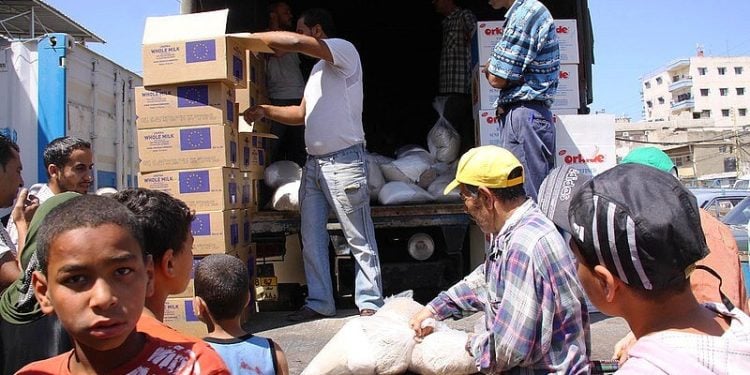The UK government has issued a stark warning about the escalating hunger crisis in Gaza, citing severe risks of famine and the urgent need for international law compliance.
Over 500,000 individuals face starvation, with 70,000 children requiring immediate treatment for malnutrition, as the situation worsens daily.
Escalating Hunger Crisis in Gaza: A Call for Immediate Action
The UK government’s recent press release paints a dire picture of the humanitarian situation in Gaza, where over half a million people are at risk of famine. This crisis is exacerbated by ongoing blockades and restrictions on aid.
Highlighting the severity, the statement references UN Security Council Resolution 2417, underscoring the legal obligations to prevent starvation during armed conflicts.
Dire Hunger Crisis: Struggles for Food and Aid Access
The physical and psychological toll on Gaza’s population is profound. Reports indicate children expressing a preference for death over enduring hunger, a chilling testament to the severity of their plight.
Furthermore, the targeting of aid workers and restrictions on humanitarian access have led to a significant decrease in available essential services, intensifying the crisis.
Historical Context and Recent Developments
The conflict’s recent escalation can be traced back to the October 7, 2023, attack by Hamas, with the situation deteriorating rapidly since then. The ongoing blockade, in place since early 2023, has severely restricted the flow of necessary supplies.
An IPC report from May 2025 provides baseline metrics that underscore the prolonged deprivation faced by Gaza’s residents, with conditions now surpassing emergency thresholds.
International Responses and Legal Perspectives
While Israeli officials deny the existence of a famine, attributing shortages to Hamas, international NGOs like MSF and Save the Children have documented the avoidable suffering caused by the blockade.
Legal experts and organizations such as Amnesty International have raised concerns that the systematic starvation could amount to genocide, highlighting the urgent need for legal accountability.
Detailed Insights on Gaza’s Humanitarian Crisis
| Category | Detail |
|---|---|
| Population Facing Starvation | Over 500,000 |
| Children Needing Malnutrition Treatment | 70,000 |
| Deaths Since May 2023 | 800+ |
| UN Resolution Cited | 2417 |
| NGOs Warning | Record-breaking malnutrition rates |
| Legal Concerns | Potential genocide through starvation |
Policy Responses and Critiques of Aid Models
The UK has openly criticized the new EU-Israel aid delivery model, describing it as dangerous and misaligned with humanitarian principles. This critique points to significant tensions in international aid policies and the effectiveness of current humanitarian responses.
By advocating for unrestricted access, the UK’s stance challenges existing diplomatic and aid delivery frameworks, suggesting a need for reevaluation.
Further Implications and Calls for Action
The UK’s call for lifting restrictions and facilitating “immediate, safe, and unhindered access” to humanitarian aid is a clear demand for change. This stance not only addresses the immediate crisis but also calls for broader international cooperation and accountability.
The condemnation of using starvation as a warfare tactic, potentially a war crime, underscores the gravity of the situation and the need for a decisive international response.
Additional Reading
Sources: UK Government Press Release, World Food Programme, World Health Organization, Foreign, Commonwealth & Development Office and Joint statement delivered by the Permanent Missions to the UN of the Dominican Republic, Estonia, France, Germany, Guyana, Ireland, Mexico, the Netherlands, Norway, Sierra Leone, Slovenia, Spain, Sweden, Switzerland and the United Kingdom..
Prepared by Ivan Alexander Golden, Founder of THX News™, an independent news organization delivering timely insights from global official sources. Combines AI-analyzed research with human-edited accuracy and context.









